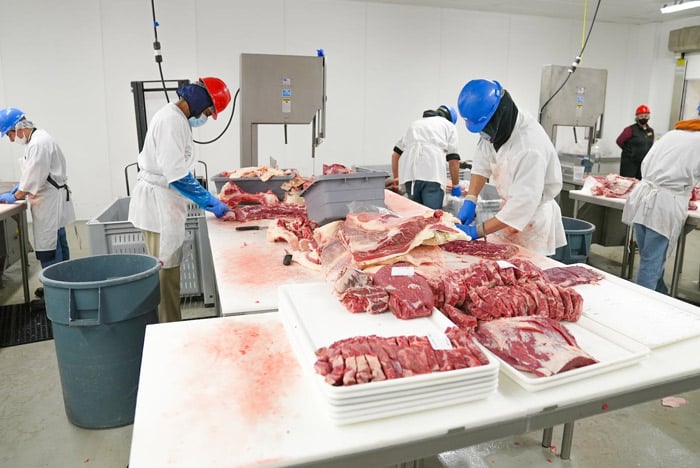
Regulatory Compliance Officer Job Description, Key Duties and Responsibilities
This post provides complete information about the job description of a regulatory compliance officer to help you learn what they do.
It highlights the key tasks, duties, and responsibilities that commonly make up the regulatory compliance officer work description.
This article also shows the major requirements recruiters typically expect applicants for the regulatory compliance officer role to meet to be offered the job.
Please, read on to improve your knowledge of the regulatory compliance officer career.
What Does a Regulatory Compliance Officer Do?
A regulatory compliance officer ensures that an organization complies or operates in conformity with its outside regulatory and legal requirements, as well as internal policies and bylaws.
Generally, compliance refers to the act or process of conforming to a rule, such as a specification, policy, standard, or law.
Therefore, the regulatory compliance officer is saddled with the responsibility of ensuring that an organization or firm take necessary steps to comply with relevant laws, policies, and regulations in the process of attaining the goals and objectives that the particular organization aspires.
A regulatory compliance officer owes his or her organization or employer the responsibility of working with management and staff to examine, identify, and manage regulatory risk.
One of the major responsibilities of a regulatory officer is to ensure that the organization that he or she works for is equipped with internal controls that adequately measure and manage the risk it faces.
In the process of disseminating his or her duties, a regulatory compliance officer may perform various important functions such as reviewing and setting standards for outside communications by examining facilities to make sure they are safe; building, designing, or updating internal policies to reduce the risk of the organization breaking laws and regulations, and lead internal audits of procedures.
In order to be more effective and efficient, individuals working in the position or field of a regulatory compliance officer must have a thorough or deep knowledge and understanding of the organization, and must always be vigilant in order to stay aware of where possible regulatory breaches might occur.
In addition, the regulatory compliance officer job description also entails organizing regular training sessions for employees in order to efficiently communicate key regulatory changes and updates.
This is specifically important in a heightened regulatory environment where change is constant.
The regulatory officer must work in relation with business units and management to ensure appropriate contingency plans are in place that set guidelines on how to handle a possible compliance breach.
In terms of academic qualifications, the educational requirements of regulatory compliance officers may vary, depending on the industry or field.
However, various industries or fields such as law, accounting, science, and financial management require regulatory officers to possess at least a Bachelor’s degree, several years of professional experience, and some specialization in the relevant field.
Regulatory Compliance Officer Job Description Example/Sample/Template
Regulatory compliance officers perform various functions to ensure that their organizations’ operation comply with the necessary regulatory requirements.
The primary tasks, duties, and responsibilities typically performed by regulatory compliance officers are shown in the job description example below:
- Ensuring that the organization complies with outside regulatory and legal requirements, as well as internal policies and bylaws
- Working hand in hand with management and staff to identify and manage regulatory risk
- Having appropriate disciplinary measures in place in the event of a regulatory breach in order to avoid a future recurrence
- Maintaining open lines of communication with all relevant decision makers and stakeholders in order to keep all parties informed of regulatory changes
- Organizing regular training sessions for employees in order to efficiently communicate key regulatory changes and updates
- Ensuring standards through disciplinary policies to ensure the organization achieves and maintains government compliance
- Creating and implementing organizational policies, standards, and procedures to comply with applicable regulations
- Ensuring that the company is equipped with internal controls that adequately measure and manage the risks it faces.
Regulatory Compliance Officer Job Description for Resume
If you have worked before as a regulatory compliance officer or are presently holding the position and are making a resume for a new job, you can write a good work or professional experience section for the resume by applying the above sample job description.
The work experience section of your resume is the part where you need to highlight the regulatory compliance officer duties and responsibilities you have performed before or are performing now, to show the recruiter that you possess the work experience that they require.
The sample regulatory compliance officer job description provided above has the duties and responsibilities you can use in making the professional experience section of your resume.
Regulatory Compliance Officer Requirements – Skills, Knowledge, and Abilities for Career Success
If you are seeking the job of a regulatory compliance officer, it is important to know that recruiters will want you to meet certain requirements before being hired.
They will want to be sure that they are getting the best candidates who can effectively perform the obligations, purpose, and objectives of the regulatory compliance officer role that will be assigned to them if hired.
Shown below are major requirements recruiters may expect you to fulfill if you are seeking the regulatory compliance officer job:
- Possessing a Bachelor’s degree and several years of working experience either through an internship or professionally in any related field and in the specialized industry
- Well developed communication skills in order to effectively work well with colleagues, or stakeholders. This is also very important as regulatory officers need to communicate key regulatory changes and updates
- Possessing strong analytical skills, paying careful and particular attention to detail, and also have an investigative mindset
- Having a deep and sound knowledge of regulatory policies as regulatory compliance officers are responsible for creating and implementing policies
- Diligence and perseverance are also required as the regulatory compliance officer must be willing to see an issue through resolution.
Conclusion
If you are a recruiter or HR manager needing to find the best regulatory compliance officer to hire, you will need to publish a description of the job to inform prospective candidates of the duties associated with the role.
You can apply the duties and responsibilities in the job description provided on this page in writing the perfect description for the available regulatory compliance officer job in your organization.
The information provided in this post is also helpful to individuals who are interested in the regulatory compliance officer career to learn about what they do and so be able to make the best decisions about the career.
Did this article increase your knowledge of what regulatory compliance officers do? Please, leave a comment in the box below. You may also share your job description if you work as a regulatory compliance officer.












